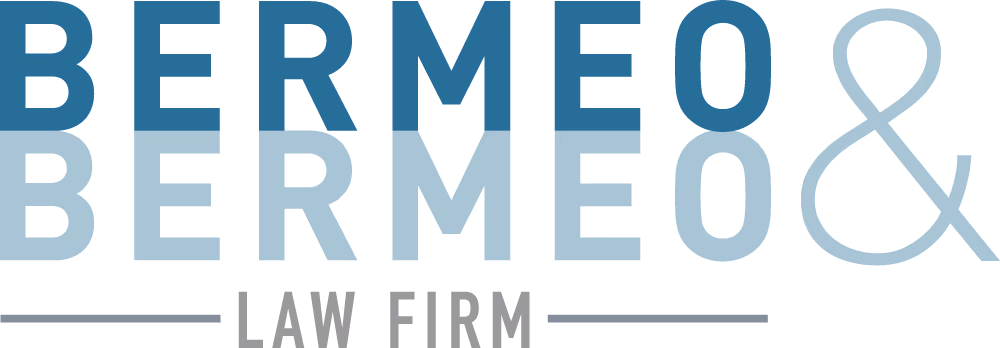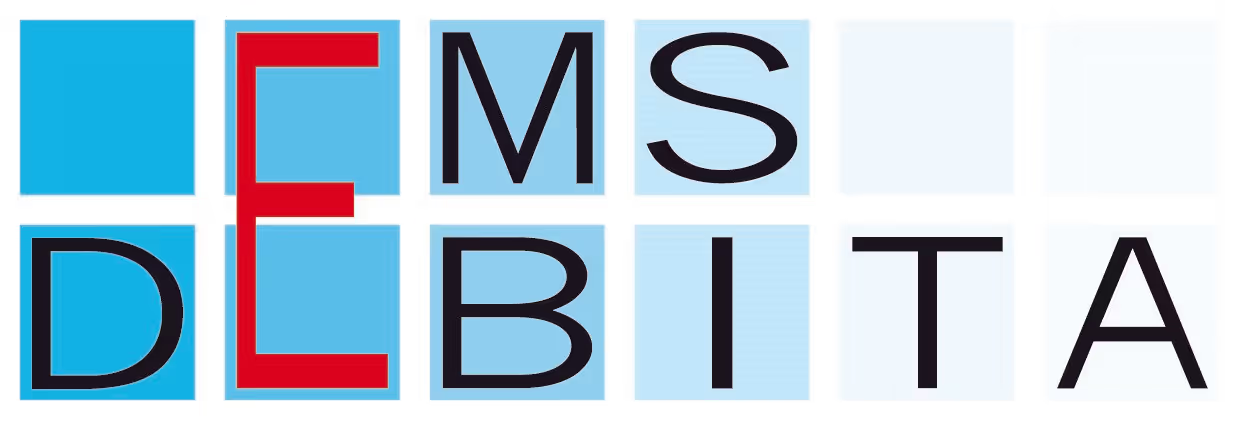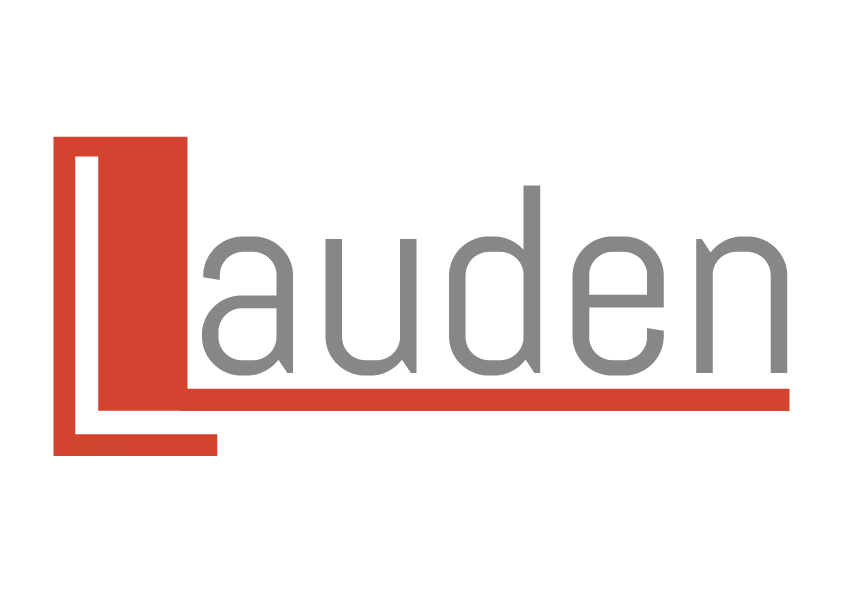Top-Rated Debt Collection Agency in Ecuador
Your trusted debt collection agency in Ecuador. Submit your claim for prompt, hassle-free recovery; learn local practices from our comprehensive guide. No upfront fees.






The ultimate guide about debt collection in Ecuador
Why you can trust this guide
At Debitura, we uphold the highest standards of impartiality and precision to bring you comprehensive guides on international debt collection. Our editorial team boasts over a decade of specialized experience in this domain.
Questions or feedback? Email us at contact@debitura.com — we update this guide based on your input.
Debitura By the Numbers:
- 10+ years focused on international debt collection
- 100+ local attorneys in our partner network
- $100M+ recovered for clients in the last 18 months
- 4.9/5 average rating from 621 reviews
Expert-led, locally validated
Written by Robin Tam (16 years in global B2B debt recovery). Every page is reviewed by top local attorneys to ensure legal accuracy and practical steps you can use.
Contributing local experts:
Last updated:
Confronting the complex world of Ecuadorian debt recovery? Look no further. Debitura combines local knowledge with far-reaching experience, simplifying these challenges. Let this guide be your key to handling debt collection in Ecuador with confidence and efficiency.
Unraveling the Dynamics of Debt Recovery in Ecuador
Navigating the intricacies of Ecuador's debt recovery landscape mandates a comprehensive understanding of the crucial roles played by variety of key personnel. This includes everything from debt collection agencies to lawyers, each performing a unique part within the rigid legal structure of debt recovery in Ecuador.
Debt Collection Agencies in Ecuador
In the realm of debt recovery in Ecuador, debt collection agencies play a pivotal role, acting as intermediaries between creditors and debtors to facilitate the resolution of outstanding debts. These agencies are instrumental during the pre-legal, or extrajudicial, phase of debt collection, utilizing methods such as letters, phone calls, and emails to encourage debtors to fulfill their financial obligations. This approach prioritizes negotiation and mediation, aiming to secure payment from the debtor without escalating to judicial proceedings. It's advisable for creditors to engage a collection agency after internal recovery efforts have been exhausted and before considering legal action. However, these agencies operate within the confines of strict regulations, such as the ones outlined in the Organic Law for Consumer Protection, which safeguards consumers from abusive practices by limiting collection calls and ensuring that communication adheres to respectful and non-harassing standards. While collection agencies play a vital role in debt recovery, their powers are limited to extrajudicial measures, and they must work within the legal framework that protects both creditors and debtors.
Lawyers and Judicial Debt Recovery in Ecuador
In the intricate landscape of debt recovery in Ecuador, enlisting the expertise of lawyers is especially critical when matters escalate to the judicial level. Lawyers play an essential role in steering through both extrajudicial and judicial phases. They become particularly vital when initial attempts such as notifications and communications fail, and legal action becomes necessary. Owing to their comprehensive understanding of Ecuador's legal framework, lawyers assist creditors by preparing and presenting necessary documentation, representing them in court, and ensuring adherence to procedural requirements. Not only do they guide creditors through the process of filing lawsuits and evidence submission, but they also represent them during hearings and in enforcing court judgments, such as asset seizure. Involving a lawyer early, preferably at the onset of judicial collection processes, is pivotal for navigating the complexities of legal proceedings effectively and safeguarding the creditor's interests.
The Role of Bailiffs in Ecuador
In Ecuador, bailiffs, known locally as 'sheriffs', are pivotal in the judicial debt recovery landscape. Operating under the legal framework set by the General Organic Code of Procedures, their key function kicks in when a creditor has been awarded a court order for debt recovery. This is typically following an executive lawsuit substantiated by an executive title, proving the obligation's authenticity. Bailiffs' tasks encompass effectuating asset seizures, overseeing their inventory, and implementing embargo actions to ensure the creditor's claim is satisfied. The requirement of a formal judicial order places a structured pathway before a bailiff's involvement, adding a layer of legal rigor to protect the rights of all parties involved. This system underscores a thorough balance between enforcing creditors' rights and safeguarding due process and fairness for debtors.
Understanding Ecuador's Debt Collection Legalities
Navigating the process of debt collection in Ecuador's intricate legal landscape is crucial for a successful outcome. Adherence to these laws not only aids in debt recovery, but also promotes fairness, contributing to the overall trust and business integrity.
The Regulatory Environment and Civil Court System in Ecuador
In Ecuador, the civil court system plays a crucial role in addressing disputes, including debt collections, through a structured legal framework.
- National Court of Justice: At the pinnacle of the Ecuadorian court system, it serves as the highest appellate court for civil and criminal matters, setting crucial legal precedents.
- Provincial Courts: These are intermediary courts that address appeals from decisions made in lower courts, including those related to civil and commercial disputes.
- Cantonal Courts: Functioning at the municipal level, these courts handle first instance civil and commercial cases, including initial debt recovery lawsuits.
The civil court system in Ecuador is designed to offer a hierarchical structure for the fair resolution of disputes. With the National Court of Justice at its apex, followed by provincial and cantonal courts, this system ensures that legal matters, including debt collection, are meticulously processed. Understanding this hierarchy is essential for international creditors to effectively navigate debt recovery in Ecuador.
Key Legislation Impacting Debt Collection in Ecuador
In Ecuador, the landscape of debt collection is shaped by a specific legal framework that prioritizes consumer protection and balances creditors' rights with debtors' dignity. This framework comprises several key regulations aimed at regulating the process effectively and fairly.
- Ley Orgánica de Defensa del Consumidor (Organic Law for Consumer Protection) - Revised in February 2023 to protect consumers from abusive debt collection practices by regulating the frequency and manner of communication between debt collectors and debtors. This law emphasizes respect for debtors' rights and establishes penalties for non-compliance.
- Código Orgánico General de Procesos (General Organic Code of Processes) - Governs the judicial procedures for debt collection, including the process to file a lawsuit and the enforcement of court judgments through asset seizure or bank account garnishments.
- Ley de Insolvencia Económica (Law of Economic Insolvency) - Details the insolvency procedures for both individuals and corporations in Ecuador, outlining the process for reorganization or liquidation in case of inability to meet debt obligations.
Ecuador's legal system ensures a balanced approach to debt collection, where the rights of both creditors and debtors are protected. By understanding and complying with these key regulations, parties involved in debt collection can navigate the process with clarity and fairness. The framework not only aims to recover debts but also safeguards the dignity and rights of all individuals involved.
Consumer Protection from Unfair Collection Practices in Ecuador
In Ecuador, recent reforms to consumer protection laws have been established to protect consumers from unfair and abusive debt collection practices, ensuring respectful and just treatment throughout the debt recovery process.
- Communication frequency is restricted to once a day between 7:00 and 20:00 on weekdays, prohibiting calls on weekends and holidays to safeguard consumer privacy.
- Debt collectors must directly communicate only with the debtor, co-debtor, or guarantor, strictly banning the disclosure of debt details to third parties.
- All communication must originate from identifiable numbers, enhancing transparency and accountability in debt collection practices.
- Harassment or intimidation in any form, including threats, ridicule, defaming, or persistent bothering of the debtor, is explicitly forbidden.
- Violations of consumer rights allow for complaints to be filed with the Defensor del Cliente of financial institutions or the Superintendencia de Bancos, ensuring entities adhere to regulations or face substantial fines.
The recent legislative changes in Ecuador’s Consumer Protection Law actively curb abusive debt collection practices while emphasizing respect for consumer rights. These reforms reflect a commitment to ensuring fair debt recovery processes and promoting financial well-being among consumers.
Exploring Amicable Debt Collection in Ecuador
Ecuador adheres to pre-legal, or amicable, debt collection—an effective procedure to reconcile debts sans court interference. Often entrusted to debt collection agencies, amicable collection is not just quicker but less intricate than legal debt collection. In this section, we navigate through the tactics and key factors in managing this process seamlessly.
- Regulated Communication Practices: Contact limited to once a day, weekdays 7:00-20:00, excluding weekends and public holidays.
- Protection from Abusive Practices: Laws ban humiliating, harassing, threatening, or defamatory behavior towards debtors.
- Complaint Processes for Debtors: Debtors can file complaints with various authorities including the Superintendencia de Bancos or Compañías.
- Fines for Non-Compliance: Financial penalties range from 1 to 10 Basic Unified Salaries, up to $4,500, with doubling for repeat offenses.
- Pre-lawsuit Recovery Efforts: Creditors must exhaust all amicable settlement options before advancing to judicial recovery.
- Legal and Financial Considerations: Fees and costs are regulated, with guidelines on calculating late payment fees.
- Statutory Interest Rates for Late Payments: Interest rates are regulated, designed to incentivize timely repayment.
- Strategic Decision-making in Debt Recovery: Informed decisions advised between extrajudicial or judicial debt recovery methods.
- Essential Documents for Debt Recovery: Important to maintain evidence of the debt, communications, and payments.
- Transition to Judicial Recovery: Consideration for legal counsel before transitioning to judicial proceedings for debt recovery.
Navigating Amicable Debt Collection in Ecuador
In Ecuador, the approach to debt collection embodies a balance between firmness and compassion. Amicable collection, favoring negotiation and patience, is a cornerstone of this method, allowing for preservation of relationships while ensuring creditors’ rights are respected. This strategy is especially relevant considering the local legal landscape and cultural sensitivity towards debt repayment.
For creditors in Ecuador, initiating the collection process amicably is not just recommended but crucial, bearing in mind the comprehensive legal framework established by the Ley Orgánica de Defensa del Consumidor and other regulatory guidelines which govern extrajudicial debt collection actions. Engaging in amicable practices ensures adherence to these statutes, safeguarding against potential non-compliance penalties.
The Role of Collection Agencies in Amicable Debt Recovery in Ecuador
Agencies like Debitura play an instrumental role in the amicable recovery of debts within Ecuador. The agency’s expertise in navigating local regulations, combined with a respectful and professional approach towards debtors, significantly enhances the likelihood of successful debt recovery. Initiating contact with tailored reminders and leveraging informed communication strategies, Debitura provides an invaluable bridge between creditors and debtors, fostering amicable resolutions.
Benefits of Amicable Settlements in Ecuador
Choosing the path of amicable resolution presents substantial benefits for all parties involved. Creditors avoid the potentially high costs and lengthy durations of legal proceedings, while still recovering owed amounts. Debtors are offered more flexible repayment terms, easing the financial burden and reducing potential stress. Moreover, by adhering to the consumer protection laws, the process reinforces a respectful and fair treatment of debtors, vital for maintaining positive long-term relationships.
Transitioning from Amicable to Legal Collection
Although the amicable route is preferred and frequently successful, certain scenarios necessitate moving towards legal collection in Ecuador. This transition is considered when all amicable efforts, including negotiations and extended communications, fail to yield results. It’s a shift taken with deliberation, recognizing the additional resources required for legal actions and the potential impacts on relationships with debtors. Debitura advises this step only after thoroughly exhausting non-confrontational methods, in alignment with best practices and local regulations.
Cost-Efficiency with Debitura in Ecuador
Debitura's approach to amicable debt collection in Ecuador is designed to be cost-effective, ensuring you receive professional services without upfront fees. Our contingency model means charges apply only upon successful debt recovery, with fees ranging between 7.5% to 30% of the collected amount—a small price for the value of preserved business relationships and recovered debts. Explore our pricing at Debitura Pricing.
The Debitura Process
Engaging with Debitura for amicable debt recovery in Ecuador simplifies what could otherwise be a complex process. The journey from initiation to resolution is designed for efficiency:
- Simple Start-Up: Registration is straightforward and free. Begin by creating your account here.
- Claim Submission: Input your claim details, accept the success fee estimation, and approve to commence the collection effort.
- Real-Time Updates: Follow the collection progress through your personalized Debitura dashboard, ensuring transparency and control.
- Legal Transition Option: Should amicable efforts not resolve the claim, Debitura facilitates the transition to legal proceedings by offering quotations from reputable local attorneys. This empowers creditors with informed decisions for further action.
By prioritizing a respectful, methodological approach to debt recovery, Debitura aims to achieve effective debt collection outcomes in Ecuador while safeguarding the crucial relationships between creditors and debtors.
The Intricacies of Legal Debt Collection in Ecuador
If friendly attempts do not yield results in debt recovery, one must turn to legal proceedings – judicial debt collection. This process necessitates a court decree and often requires bailiffs and legal counsel involvement unless it's a small claim scenario. In the subsequent part, you'll find an in-depth guide on Ecuador's specific judicial debt collection procedures.
- Consumer Protection Reform: February 2023 reform emphasizes respectful debt recovery and limits collection calls.
- Prohibited Practices: Restricts contacting third parties about debtor's financial obligations and abusive tactics.
- Legal Recourse: Debtors can report abusive practices, with creditors facing fines for non-compliance.
- Judicial Process Initiation: Creditors must provide legal proof of debt to start judicial collection.
- Flexible Timeline: No specific timeline for initiating legal proceedings, allowing strategic timing for action.
- Judiciary Hierarchy: Ecuador's court system, from national to cantonal courts, facilitates debt recovery.
- Legal Fees: Creditors should consult legally in advance, considering varying fees and the necessity of representation.
- Peace Courts Proposition: Proposes creating peace courts for expedient resolution of minor disputes.
- Consumer Rights Awareness: Stresses creditor compliance and ensures consumer awareness against scams.
- Penalties for Non-compliance: Strong enforcement mechanisms aim to dissuade overstepping in debt collection.
Shifting from Amicable to Judicial Debt Collection in Ecuador
In Ecuador, the debt collection landscape is distinctly divided into amicable and judicial phases. Amicable debt collection focuses on negotiations and settlements through communication methods like calls, emails, and notifications. However, when these methods fail to recover the outstanding debts, creditors may need to resort to judicial processes. This transition often occurs in the presence of disputes or when it becomes apparent that enforcement actions are necessary to recover the owed amounts. Engaging legal counsel or representation during these times becomes crucial for navigating the judicial recovery process efficiently and effectively.
The Importance of a Formal Judgment in Ecuador
Obtaining a formal court order or judgment is a critical step in the judicial debt collection process in Ecuador. This legal document formalizes the creditor's claim against the debtor and is essential for implementing debt enforcement actions. To acquire a court order, creditors must initiate a lawsuit by providing evidence supporting the existence and the specific amount of the debt, followed by allowing the debtor an opportunity to defend themselves. Once the court issues a judgment in favor of the creditor, it enables various enforcement mechanisms, such as asset seizure or garnishment of bank accounts, to recover the debt owed.
Determining the Appropriate Court in Ecuador
In Ecuador, determining the appropriate court for a debt collection case involves considerations such as the size and complexity of the claim. For minor disputes and claims of a smaller scale, proposals have been suggested for establishing peace courts that handle consumer disputes, unpaid debts, and rental issues efficiently at a local level. These courts are envisioned to offer a mediator-based system providing speedy, informal, and fair justice, especially for vulnerable populations. Meanwhile, larger and more complex cases are typically handled by higher judicial authorities, including cantonal courts and above, depending on the specifics of the case. Navigating the choice of court is crucial for creditors to ensure their cases are heard appropriately and judgments can be executed effectively.
Small Claims Court in Ecuador
In addressing the need for an efficient judicial response to minor legal matters in Ecuador, the concept of peace courts emerges as a significant proposal. This innovative approach to the judicial system is tailored to resolve common neighborhood conflicts, including consumer disputes, unpaid debts, and rental issues, which are frequently not adequately managed by the regular courts. The main objective is to provide timely and fair justice at a local level, especially benefiting vulnerable populations. Peace courts are envisioned to operate based on principles of informality, expediency, immediacy, and orality, thereby reducing bureaucracy and costs, and promoting peaceful coexistence and legal compliance. Focused on consumer protection, minor civil, commercial, and labor disputes, as well as neighborhood coexistence issues, the proposed peace courts aim to significantly improve access to justice for all Ecuadorians by offering a mediator-based system that addresses disputes effectively and fairly.
Ordinary Proceedings in Ecuador
In Ecuador, ordinary proceedings address more complex and higher-value disputes compared to small claims courts, making them a critical part of the judicial debt collection process. This pathway allows for a comprehensive examination of disputes that exceed the limitations set for small claims, thus providing a more formal and structured legal environment. The primary advantage of ordinary proceedings over small claims court lies in their capacity to handle intricate legal issues and higher claim values, offering a detailed litigation process with expert judicial scrutiny.
Legal representation through a qualified attorney is mandatory in ordinary proceedings, ensuring that all parties are adequately represented and that the complexities of the case are professionally managed. This requirement is pivotal, as the procedural and substantive laws regulating ordinary proceedings are nuanced and require expert navigation. The judicial framework governing these proceedings is outlined in the Ecuadorian Code of Civil Procedure, ensuring that both creditors and debtors’ rights are safeguarded throughout the collection process.
The robust structure of ordinary proceedings, combined with the expertise of legal professionals, ensures that debt collection in Ecuador is conducted fairly, transparently, and efficiently. This approach not only reinforces the rule of law but also ensures that the interests of all parties involved are meticulously considered and addressed.
Enforcing Debts in Ecuador: A Practical Guide
Obtaining a court-ordered debt collection in Ecuador is only the first step. Once obtained, the ruling must be enforced. This process, known as debt enforcement, is facilitated by official bailiffs and allows creditors to seize debtors' assets - a crucial component in recouping your claim.
- Executive Trial: A judicial process regulated within the General Organic Code of Procedures for debt collection.
- Executive Lawsuit Initiation: Requires a valid executive title proving the debt's existence and detailed claim information.
- Justice Operators’ Role: Ensure the rights of procedural parties in debt execution, offering defendants a chance to settle or agree on payment.
- Documentation for Debt Execution: Includes executive title, party identities, debt amount, interest rates, and payment terms.
- Sheriff Involvement: May execute necessary actions like asset seizure for debt enforcement, respecting all parties' rights.
- Judicial Order Requirement: Essential for legitimizing enforcement actions and ensuring transparent proceedings.
- Debtor Consequences: Subject to asset seizure, financial penalties, or other enforcement measures for debt repayment.
- Consumer Protection Reform 2023: Limits debt collection calls, respecting debtor rights, with penalties for non-compliance.
- Asset Embargo Procedure: Requires court order for asset seizure, protecting debtor rights before removal.
- Garnishment and Salary Attachments: Governed by the COGEP, offering protection for basic living standards and exempt items.
Judicial Proceedings in the Execution of Debts in Ecuador
In the realm of debt enforcement in Ecuador, judicial procedures hold a paramount role, epitomized by the executive trial—a legal mechanism stipulated by the General Organic Code of Procedures. This trial serves as the fulcrum for enforcing obligations encapsulated within an executive title, outlining the creditor's right to collect. Initiating this process necessitates presenting an executive lawsuit, meticulously documented with particulars of the debt, including identities of the parties, debt amount, interest rates, and payment terms. This rigorous procedure underscores the mandate for executive trials to adhere to due process, safeguarding the constitutional right to defense for all parties involved.
The Critical Role of Bailiffs in Asset Seizure
Integral to the debt enforcement landscape in Ecuador are the bailiffs, tasked with implementing court orders by locating and seizing debtor's assets. Their scope of responsibilities spans identifying, valuating, and organizing the sale of these assets, often through auction. They ensure the equitable distribution of proceeds to creditors while aligning their actions with the legal system’s guidelines. Notably, they navigate the delicate balance of enforcing debt collection and preserving the debtor's right to essential assets and income for basic sustenance.
Understanding Costs and the Legal Scaffold in Ecuador
A significant consideration in debt enforcement is the spectrum of associated costs—ranging from court fees and bailiff charges to expenses incurred for legal representation. The complexity and duration of the case heavily influence these costs. Ecuador's legal framework delineates the procedures for debt enforcement, specifying the roles of bailiffs, the rights of all stakeholders, and guidelines to ensure a transparent and equitable process. This legal architecture fosters a just debt recovery system, prioritizing due process and respect for individual rights.
Initiating the Debt Enforcement Process
Preparation for enforcement is a crucial step for creditors, entailing the authentication of a valid enforceable title. In some instances, creditors might extend a final payment request to the debtor as a gesture, allowing for voluntary debt settlement and respecting the debtor’s right to challenge the enforcement. Identifying a legitimate title is essential, serving as the bedrock for proceeding with legal actions. The aim is to undertake a process that is fair, transparent, and compliant with Ecuador's stringent legal standards, thus safeguarding the interests and rights of all parties involved.
Consumer Rights and Remedies
With recent reforms to the Ley Orgánica de Defensa del Consumidor (Organic Law for Consumer Protection) in February 2023, Ecuador has significantly enhanced protections against abusive debt collection practices. These reforms specify permissible times and frequencies for debt collection communications, and strictly prohibit harassment, intimidation, or contacting third parties about the debtor's financial obligations. Violations of these regulations can result in substantial penalities for the collecting entities. Consumers facing undue pressure or violations of their rights have multiple avenues for recourse, including complaints to the Defensor del Cliente, Superintendencia de Bancos or Compañías, or the Defensoría del Pueblo. This legal framework ensures that the process of debt enforcement respects the dignity and rights of consumers, creating an environment of fairness and respect in financial dealings.
Understanding the Insolvency Process for Debt Recovery in Ecuador
When a debtor cannot fulfill their financial commitments, insolvency ensues. Typically this scenario makes usual enforcement tactics such as asset confiscation through court mandates ineffective, due to the lack of assets worth recovery. In these situations, the bankruptcy procedure becomes an indispensable remedy. These legal practices are programmed to systematically liquidate the debtor's assets, providing a last-ditch strategy to rescue any possible compensation for unresolved claims.
- Legal Framework: Governed by the Civil Procedure Code of Ecuador, insolvency law addresses financial incapacity to meet obligations.
- Conditions for Bankruptcy: Declared when unable to pay obligations due to lack of capital, overdue debts, or facing execution processes.
- Insolvency Declaration Effects: Eliminates all existing debts, but impacts credit reports and opportunities for at least 10 years.
- Types of Insolvency: Categorized into fortuitous, culpable, or fraudulent, affecting the legal procedures and outcomes.
- Benefits of Insolvency Application: Can extend payment deadlines, suspend interest charges, and provide negotiation leverage with creditors.
- Prohibited Practices: Recent reforms limit debt collection calls to once a day and prohibit communication on weekends and holidays.
- Communication Restrictions: Calls must be directed to the debtor, co-debtor, or guarantor, and originate from identifiable numbers.
- Legal Recourse: Violated consumer rights can be reported to the Superintendencia de Bancos or Compañías for investigative actions and fines.
- Consumer Protections: Ecuador's legal system enforces strict regulations against abusive debt collection practices to protect consumers.
Comprehensive Overview of Insolvency in Ecuador
In the ever-evolving economic landscape of Ecuador, understanding the ins and outs of insolvency is crucial for businesses and creditors to navigate the complexities of debt recovery. Insolvency proceedings in Ecuador provide a legal framework for addressing cases where businesses or individuals cannot fulfill their financial obligations. Governed by the Civil Procedure Code of Ecuador, these procedures aim to either restructure the debtor’s financial affairs for recovery or liquidate assets to repay creditors. The initiation of the insolvency process can stem from either the debtor or the creditors, based on specific conditions such as ongoing execution processes, the delay in fulfilling obligations, or the inability to pay multiple creditors which signals financial distress.
Priority and Protections: Evaluating Creditor Rights in Ecuadorian Insolvency
During insolvency proceedings in Ecuador, creditor claims are meticulously categorized and prioritized as per the legal statutes. This categorization distinguishes between secured and unsecured claims, significantly impacting the recovery likelihood for creditors. It is of paramount importance for creditors to timely register and validate their claims to safeguard their interests within the proceedings. Engaging actively, for instance, through participation in creditor committees or by advocating for favorable reorganization plans, can substantially enhance recovery prospects and influence the outcome.
Navigating Costs and Timelines in Insolvency Procedures
The pathway through insolvency proceedings in Ecuador involves various costs, including court fees, administrative expenses, and legal representation, all of which are borne from the debtor’s estate prior to any creditor repayments. A pivotal aspect affecting creditors and businesses alike is the timeline of these proceedings, which can fluctuate extensively. Factors such as the intricacy of the debtor’s finances, the volume of claims submitted, and possible legal contestations can extend the process considerably. Creditors must, therefore, brace for potentially lengthy periods before realizing debt recovery, a factor that significantly impacts strategic planning and financial forecasting.
Find a Local Debt Collection Lawyer
Need court-ready representation? Share your case once and receive up to three proposals from vetted litigation attorneys—free, fast, and with no commitment.
- Verified specialists
- Quotes in 24 h, no hidden fees
- Fair, pre-negotiated rates

Aguirre Noboa Law Firm is a premier law firm in Quito offering effective Debt Collection services in Ecuador, recognized in IAM Patent 1000 and Chambers Global Guide 2025, serving Ecuador and other Latin American countries since 2014 with esteemed memberships in INTA and AIPPI.

Almeida Guzman & Asociados is a premier law firm in Quito offering effective Debt Collection services in Ecuador, established in 1981 and recognized with a Band 1 ranking by Chambers Latin America 2025, ensuring trusted expertise in debt recovery.

Bermeo & Bermeo Law Firm is a premier law firm in Quito offering effective Debt Collection services in Ecuador, recognized for over 75 years of legal excellence, fixed pricing options, and memberships in prestigious associations, serving all Latin American countries.

Dentons Paz Horowitz is a premier law firm in Quito offering effective debt collection services in Ecuador, established in 1991, employing a team of 81 professionals, and recognized with awards such as Financing Innovation of the Year at the Latin Finance 2023 Deals of the Year Awards.

DLL Abogados is a premier law firm in Quito offering effective Debt Collection services in Ecuador, renowned for its client-centric approach since 2017, with accolades from The Legal 500 and memberships in prestigious legal forums, ensuring unmatched expertise and reliability.

QL Quitolegal Sociedad Por Acciones Simplificadas is a premier law firm in Quito offering effective Debt Collection services in Ecuador, positioning itself as the go-to partner for debt recovery since 2016, with a strong reputation for ethical and professional practices.

ULLOA & ASOCIADOS is a premier law firm in Guayaquil offering effective Debt Collection services in Ecuador, established in 1977, and recognized for its membership in the Colegio de Abogados del Guayas and Consejo de Participación Ciudadana y Control Social.

EMS Debita Internacional is a premier debt recovery agency in Ecuador offering effective risk-free debt collection services. Founded in 2000, the firm is the go-to partner for debt recovery, renowned for its award-winning services and global reach, including operations in Ecuador, Brazil, and the rest of South America. As the exclusive Debitura partner in South America, EMS Debita offers No Cure No Pay debt collection based on Debitura's risk-free standard terms and pricing.

Lauden Law is a premier law firm in Quito offering effective Debt Collection services in Ecuador, positioning itself as the go-to partner for debt recovery with a foundation in 2017, accolades like International Law Expert of the Year, and memberships in IBA and DC BAR.

Martínez Law Firm is a premier law firm in Quito offering effective Debt Collection services in Ecuador, positioning itself as the go-to partner for debt recovery with a foundation in 2020 and a focus on civil and commercial litigation expertise.





.svg)

.webp)
.png)

.png)
.svg)












.svg)

